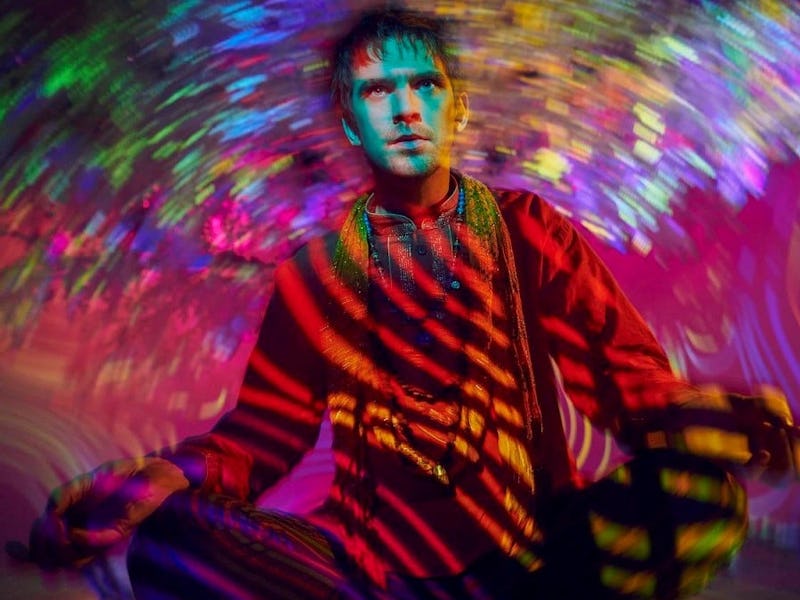5 years ago, one underrated superhero show changed Marvel forever
No TV series has quite matched Legion’s energy and inventiveness, but plenty have tried.

Legion may not have been the most-watched superhero TV series, but it’s proving to be one of the most influential ever made. For three seasons, the FX comic book series delivered some of the most astonishing visuals, charismatic performances, and experimental writing that the superhero genre has ever seen. Now, five years after its premiere, Legion’s influence has become practically all-encompassing.
The series has emerged as an unspoken reference point for everything from Maniac and WandaVision to The Mysterious Benedict Society. It’s rare for a year to go by where I don’t turn on a new TV show and think, “This reminds me of Legion.”
The trippy superhero series embraced the visual and structural flexibility of episodic TV storytelling, and often combined it with the weirdest, reality-bending corners of Marvel Comics in a way that Marvel Studios has only just begun to do.
Dan Stevens as David Haller in FX’s Legion.
Created by Noah Hawley, Legion focuses on David Haller (Dan Stevens), the son of Charles Xavier, as he struggles to deal with both his powerful psychic powers and his schizophrenia. Delving straight into the mind of one of Marvel’s most eccentric characters, Legion wasn’t afraid to get abstract. From choosing to depict a telepathic fight between two psychics as a club-style dance battle to explaining one character’s backstory through animations on a chalkboard, the series constantly delivered new twists on familiar comic book tropes.
While no superhero show since Legion has dared to try replicating any of its strangest moments, the series’ visual ingenuity has had a lasting impact. Its retro-futuristic production design has influenced shows like Loki and The Umbrella Academy, and its willingness to experiment with aspect ratios has inspired several TV shows as well.
The way WandaVision, for instance, used aspect ratios to differentiate its various planes of reality felt inspired by Legion’s use of the technique. And the latter’s influence on WandaVision doesn’t begin and end with its visual motifs.
Aubrey Plaza and Lauren Tsai in Legion Season 3.
Nearly three years before WandaVision told a story about a powerful superhero creating a new reality to cope with a devastating loss, Legion aired an episode where Haller creates dozens of different realities where a departed loved one is still alive. That episode, which aired halfway through Legion’s second season, wasn’t an outlier. It was just one of many times when Legion demonstrated a willingness to tell the kind of emotional, messy, reality-breaking comic book stories most superhero shows avoid tackling.
Legion proved those tales could work in live-action form, and several years later Marvel Studios has begun venturing further and further into its multiverse, introducing concepts like variants, time travel, and chaos magic in WandaVision, Loki, and What If…?. Despite that, those shows have yet to reach the same experimental heights that Legion did (if you think WandaVision’s black and white sitcom episodes were bold, wait until you see the silent film sequence from Legion Season 1).
That’s because Legion wasn’t afraid of abandoning logic in exchange for emotional authenticity. The series’ openness to depicting transformative moments as fantasies happening entirely in characters’ heads felt rare and brave. Now an increasing number of TV shows are doing the same thing, whether it be WandaVision or a post-apocalyptic drama like Station Eleven.
Dan Stevens and Aubrey Plaza in Legion Season 1.
Even as superhero movies and TV shows continue to get more experimental, many have yet to try everything that Legion did.
The series wasn’t only willing to be more visually and narratively flexible than most shows we see today, but it was open to dealing with subjects that many comic book adaptations still don’t. Even if it didn’t always hit the mark, Legion’s desire to tackle serious issues like mental illness and sexual assault still puts it ahead of many of the superhero shows that have followed and been inspired by it.
It’s becoming increasingly clear just how ahead of its time Legion truly was. Five years after its premiere, we’re still watching everyone else try to catch up.
All three seasons of Legion are available to stream now on Hulu.